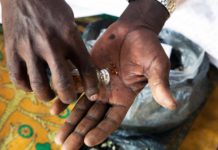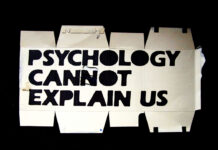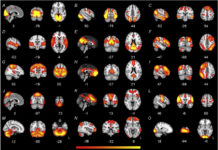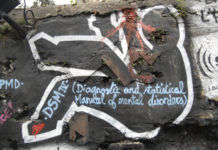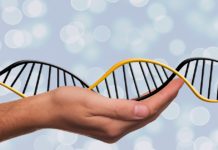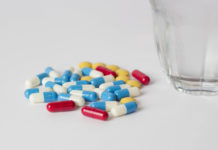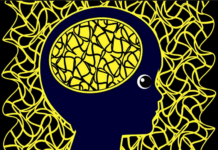Integrating Indigenous Healing Practices and Psychotherapy for Global Mental Health
As the Global Mental Health Movement attempts to address cross-cultural mental health disparities, a new article encourages integrating traditional healing practices with psychotherapy.
Troubling Mental Health Nurse Education
Mental health nurse education in not sufficiently critical of institutional psychiatric practice. Its formal curricula in universities are often undermined by the informal curricula of practice environments. As an institution, mental health nursing pays insufficient attention to both these issues because it is an arguably un-reflexive and rule-following discipline.
Researchers Test Harms and Benefits of Long Term Antipsychotic Use
Researchers from the City College of New York and Columbia University published a study this month testing the hypothesis that people diagnosed with schizophrenia treated long-term with antipsychotic drugs have worse outcomes than patients with no exposure to these drugs. They concluded that there is not a sufficient evidence base for the standard practice of long-term use of antipsychotic medications.
Multiple Researchers Examining the Same Data Find Very Different Results
A new study demonstrates how the choice of statistical techniques when examining data plays a large role in scientific outcomes.
Between Psychiatry and Anti-Psychiatry: Mad in America Opens a Dialogue
Editor's Note: At the Mad in America film festival, Allen Frances, M.D., who was the chairman of the DSM IV task force, participated on a panel of psychiatrists who were asked to respond to the themes explored at the festival and to offer their own critiques of psychiatry. After the festival, he wrote a blog for the Huffington Post, which was partially inspired by his participation at the festival, and he then offered to re-publish it on MIA. It appears below. Also at the festival, Justin Brown sought to hand out a leaflet criticizing Dr. Frances’ writings, as well as his critique of those who criticize psychiatry. We asked him to submit a post for MIA instead, which is published below.
More to Happiness Than Feeling Good, Study Finds
Cross-cultural data suggest that happiness involves feeling the emotions one deems as right, in accordance with personal and cultural values.
Study Finds ADHD Drugs Alter Developing Brain
A new study, published in the JAMA Psychiatry, investigates the effect of stimulant ‘ADHD’ drugs on the brains of children and young adults. The...
Dissecting the DSM Debate: Researchers Analyze Critiques Across Audiences
A new study systematically explores critical reactions to the DSM-5 and identifies unifying themes.
Psychosocially Oriented Psychologists Struggle Against the Medical Model
Interviews with psychosocially oriented psychologists demonstrate their experiences of discomfort with the hegemony of the medical model in their place of work and the conflicts that arise when they attempt to provide alternatives.
Robert Whitaker Missed the Mark on Drugs and Disability: A Call for a Focus...
Robert Whitaker extended one of his core arguments from Anatomy of an Epidemic in a blog post last week. His argument revolves around the claim that psychiatric drugs are the principal cause of increasing psychiatric disability, as measured by U.S. social security disability claims. But does this really explain the rise in recipients of these SSI & SSDI benefits?
An Alternative Perspective on Psychotherapy: It is Not a ‘Cure’
Kev Harding argues against conceptualizations of therapy as a ‘cure’ to an ‘illness’ and instead offers alternative approaches.
No Brain Connectivity Differences Between Autism, ADHD, and “Typical Development”
Neuroscience researchers find no differences in brain connectivity between children with diagnoses of autism, ADHD, and those with no diagnoses.
Prominent Researcher and Psychotherapist Questions “Evidence-Based Therapy”
Dr. Johnathan Shedler recently published a paper critiquing how the term “evidence-based” is being used in the field of psychotherapy.
Everything Matters: a Memoir From Before, During and After Psychiatric Drugs
Psych meds can not only put weight on regardless of how you otherwise care for yourself, they also tend to make people feel gravely lethargic and vaguely sick all the time. I could not exercise as I had before. Could not. It doesn't matter how much mental health professionals try to tell us that if we just exercised we'd be okay in the face of neurotoxic drugs that cause weight gain, because the fact is the drugs impede that capacity. This is not widely appreciated or understood and people on psych meds are again traumatized and made to feel guilty for something that is truly outside of their control as long as they are taking these medications.
Researchers Confirm That Relative Age Impacts ADHD Diagnosis
The youngest children in a class are more likely to receive an ADHD diagnosis than their peers.
Study Explores Māori Community’s Multifaceted Understanding of “Psychosis”
A new study explores how “psychosis” and “schizophrenia” are viewed within the Māori community in New Zealand.
Time to Abolish Psychiatric Diagnosis?
‘Diagnosing’ someone with a devastating label such as ‘schizophrenia’ or ‘personality disorder’ is one of the most damaging things one human being can do to another. Re-defining someone’s reality for them is the most insidious and the most devastating form of power we can use. It may be done with the best of intentions, but it is wrong - scientifically, professionally, and ethically. The DSM debate presents us with a unique opportunity to put some of this right, by working with service users towards a more helpful understanding of how and why they come to experience extreme forms of emotional distress.
How the “Brain Defect” Theory of Depression Stigmatizes Depression Sufferers
Viewing depression as a “brain defect” rather than a “character defect” is supposed to reduce the stigma of depression, according to the American Psychiatric...
Western Psychiatry in Crisis: UK Psychiatry Re-Positions Itself
"Western psychiatry is in crisis." Not just our words, but the opening line of the powerful recent statement by Mental Health Europe (2013), a large and respected umbrella organisation representing both professionals and service users. It goes on to deplore "the simplistic and imposed application of … reductionist science" which can "encroach on basic human rights." In this post we examine the ways in which the profession of psychiatry is, in the UK, re-positioning itself in response to the widely-acknowledged threat to its power and status arising from the DSM-5 debacle and the ongoing failure to find the biomarkers that will confirm its theories.
Decontextualized Depression and PTSD Diagnoses Fail Indigenous Communities
A case analysis of an American Indian woman illustrates how the DSM diagnostic criteria misrepresent the lives of indigenous people.
It is Time to Abandon the Candidate-Gene Approach to Depression
The candidate-gene approach to depression goes unsupported and is likely based on bad science, new research finds.
Better Outcomes Off Medication for Those Recovered from First-Episode Schizophrenia
A new study has found that of 10 people who were fully recovered from their first episode of schizophrenia (FES), those not taking antipsychotics did better in terms of cognitive, social, and role functioning—and reached full recovery more quickly.
The Hearing Voices Movement: Beyond Critiquing the Status Quo
We have just celebrated the anniversary of the rapidly expanding global Hearing Voices Movement which was founded more than twenty-five years ago following the ground-breaking research of Professor Marius Romme and Dr Sandra Escher. Romme and Escher have advocated for a radical shift in the way we understand the phenomenon of Hearing Voices; in contrast to traditional, biomedical psychiatry which views voices as an aberrant by-product of genetic, brain and cognitive faults, their research has firmly established that voices make sense when taking into account the traumatic circumstances that frequently provoke them.
Psychotherapy Less Effective for People in Poverty and Those on Antidepressants
A new study finds poorer depression and anxiety outcomes in psychotherapy for people in economically deprived neighborhoods and those on antidepressants.
United Nations Report Calls for Revolution in Mental Health Care
In a new report, the United Nations Special Rapporteur on the right to health, Dr. Dainius Pūras, calls for a move away from the biomedical model and “excessive use of psychotropic medicines.”

